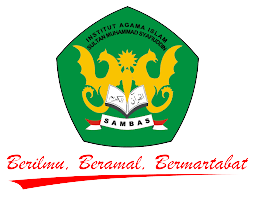Prototype of Fiduciary Guarantee in Islamic Law
Study of Four Ulama Schools of Jurisprudence Perspectives
Abstract
Fiduciary guarantees are material guarantees, which at first glance have similarities to pledge guarantees in Islamic law. This research will attempt to answer three main problems, what is the prototype of fiduciary guarantees in the thinking of scholars from the four schools of jurisprudence? What are the reasons and arguments put forward by these scholars regarding the four crucial factors related to fiduciary? Whose opinion is closer to fiduciary guarantees in Indonesia? The research results conclude that the prototype of fiduciary guarantees in Islamic economics already exists. This prototype can be seen from four crucial factors in the practice of fiduciary guarantees, namely the handover of collateral objects, control of collateral objects, use of collateral objects by the debtor and the creditor's rights if the debtor defaults when projected into the collateral. Of the four factors of fiduciary guarantees, the majority of ulama, namely Hanafiyah, Malikiyah, Syafi'iyah and Hanabilah, have the same opinion. They only differ regarding the execution of collateral if the debtor defaults. The reason they developed in relation to the four crucial factors in fiduciary guarantees is that the handover of marhun is an absolute characteristic of the existence of a rahn contract. While in control of the collateral or marhun, seeing that the marhun is rahin's property and then the control rights are transferred to the murtahin, rahin will be able to borrow the original marhun with the murtahin's permission. Including when borrowing marhun from the murtahin's custody rights, the rahin can also use the marhun with the murtahin's permission. In connection with the crucial factors that exist in the practice of fiduciary guarantees, it is the opinion of Syafi'iyah scholars that is closest to fiduciary guarantees.
References
al-Zuhaili, W. (2006). Al-Fiqh wa Adillatuh (1–5). Dar al-Fikr.
Arikunto, S. (2007). Manajemen Penelitian: Prosedur Penelitian Suatu Pendekatan Praktek. Rineka Cipta.
Creswell, J. W. (2014). Research design: Qualitative, quantitative, and mixed methods approaches (4th ed.). SAGE Publications, Inc. https://www.pdfdrive.com/qualitative-quantitative-and-mixed-methods-approaches-e91943566.html
Ibnu Qudamah al-Maqdisi, M. ad-D. A. M. A. allah I. A. I. M. (n.d.). Al-Mughni. Mathba’ah Jumhuriyah Islamiyah.
Ibnu Rusyd, A. al-W. M. I. A. I. M. I. A. (n.d.). Bidayah al-Mujtahid wa Nihayat al-Muqtashid. Dar Ihya al-Kutub al-Arabiyah.
Indonesia, P. P. (2022). Peraturan Lengkap Fidusia: UU RI No. 42 Tahun 1999. PT Bumi Aksara.
Kasani, A. B. M. I. A. I. A. ad-Din al-. (1996). Al-Bada’i’ ash-Shana’i fit Tartib Asy-Syara’i. Dar al-Fikr.
Krippendorff, K. (2004). Content Analysis: An Introductions to its Methodology. Sage Publication.
Mashdurohatun, A., Arifin, Z., & Gunarto. (2016). Rekonstruksi Parate Eksekusi Hak Tanggungan atas Tanah yang Berkeadilan. UNISSULA PRESS.
Moleong, L. J. (2012). Metode Penelitian Kualitatif. Remaja Rosdakarya.
Nurjihad. (2023). Legal Conformity Between Rahn Tasjily And Fiduciary Guarantee And Obstacles To Implementation In Indonesia. Prophetic Law Review, 5(2), Article 2. https://doi.org/10.20885/PLR.vol5.iss2.art5
Prastowo, A. (2011). Metode Penelitian Kualitatif dalam Perspektif Rancangan Penelitian. Ar-Ruzz Media.
Salim, H. S. (2000). Perkembangan Hukum Jaminan di Indinesia. Raja grafindo Persada.
Sugiyono, S. (2012). Memahami Penelitian Kualitatif. Alfabeta.
Suryandari, W. D. (2021). The Application of Fiduciary Guarantee in the Perspective of Islamic Law. Jurnal Daulat Hukum, 4(4), Article 4. https://doi.org/10.30659/jdh.v4i4.17952
Syarbini, S. ad-D. M. I. M. al-Khatib asy-. (1958). Mughni Al-Muhtaj. Musthafa al-Babi al-Hallabi.
Tiong, O. H. (1984). Fiducia Sebagai Jaminan Unsur-Unsur Perikatan. Ghalia Indonesia.
Widjaja, G., & Yani, A. (2000). Jaminan Fidusia. Raja Grafindo Persada.
Yasin, M. N. (2001). Produk-produk Bank Muamalat Indonesia. IAIN Sunan Kalijaga Yogyakarta.
Copyright (c) 2024 Marwadi, Mughni Labib, Muhajir

This work is licensed under a Creative Commons Attribution-ShareAlike 4.0 International License.




















